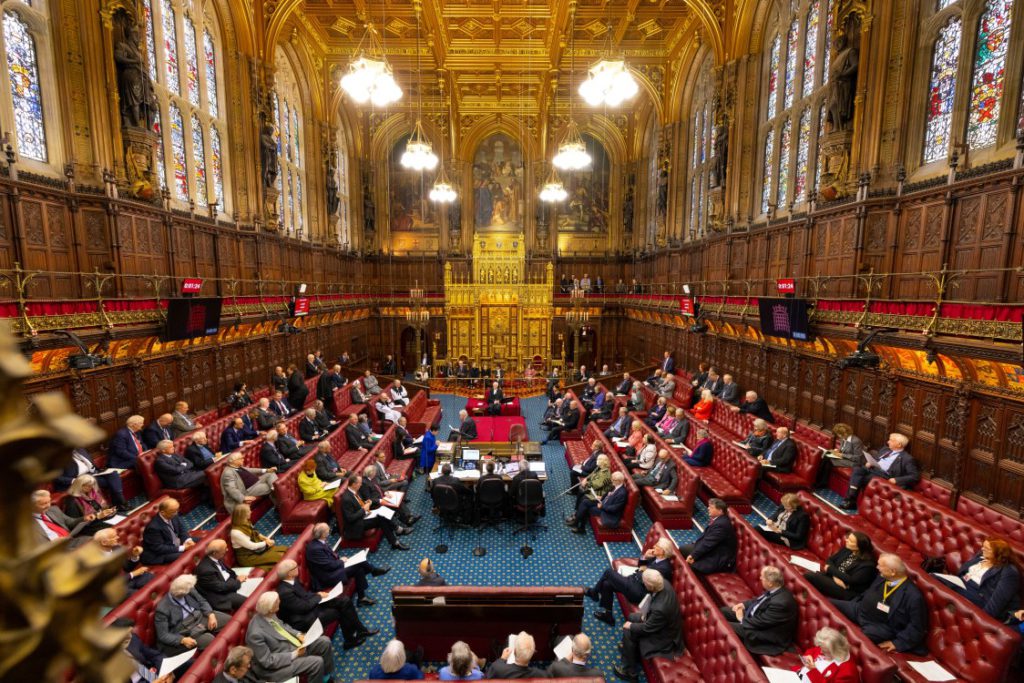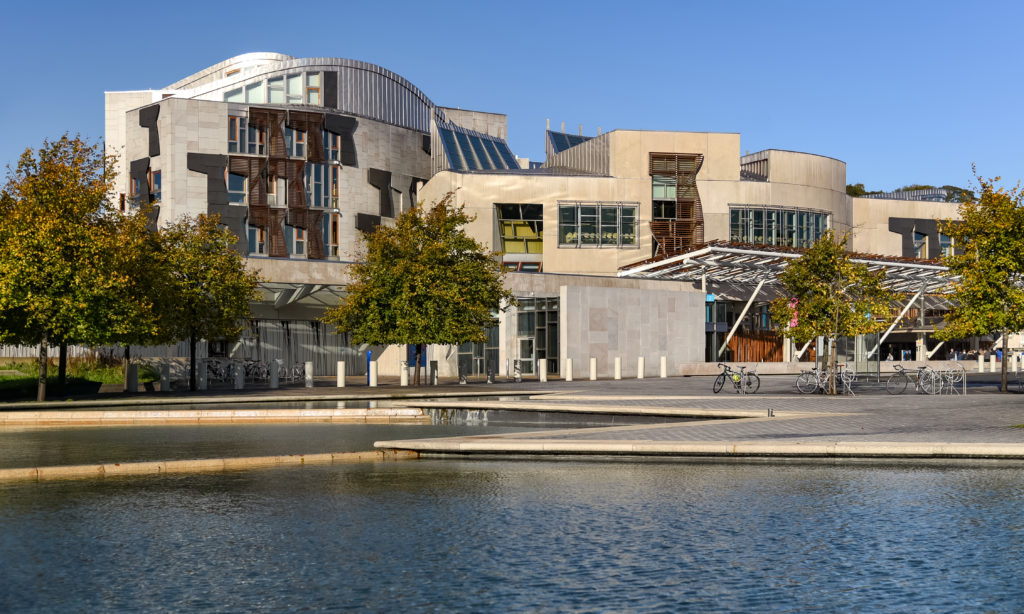
Eddie Barnes
Eddie Barnes is Campaign Director of Our Scottish Future
Scotland can unite around a new mission to push power out of both Holyrood and Westminster
“At the heart of our past and current discontents lies the centre.”
So declared Professor James Mitchell last week in a lecture at Glasgow University. But the professor of politics and international relations at Edinburgh University had not one but two centres in mind: Westminster and Holyrood.
In a sweeping historical and political overview of the state of modern Britain and Scotland’s place in it, Mitchell dared to pose an uncomfortable question for both sides of the constitutional divide. Nationalist blame Westminster; Unionists blame Holyrood: but is not the case that both are too powerful, that both lack transparency, that both put a block on improving outcomes in the things we care about: a healthier, wealthier, greener nation?
Whether it is a tin-eared Westminster system that, nearly 25 years on, still fails to grasp the reality of devolution, or a centralised Scottish state that puts the brakes on innovation and community empowerment, we are all being short-changed by remote and unaccountable elites at the centre of power, he argued.
It’s a novel thought. Both sides of the constitutional aisle in Scotland have for so long been at each other’s throats over the best way forward for the country. Now, following the departure of Nicola Sturgeon, the battlefield of the last decade is clearing somewhat. Might it be the case that both sides could get behind a better, more fruitful campaign – to change the centralised, sclerotic form of government that afflicts both of our centres of power? Is this the kind of new movement that might unite people in Scotland across the independence divide?
Prof Mitchell’s lecture, held at Glasgow University, was given in honour of the late Nigel Smith, the pro-devolution campaigner who helped organise the 1998 “Yes” campaign for the Scottish Parliament. Smith died suddenly three years ago but he remains something of a political hero for a small number of devotees across Britain (me included). Completely non-partisan, deeply sceptical and ruthlessly logical, he brought a businessman’s problem-solving insight into the question of how we governed. His influence is still keenly felt.
As Mitchell noted in the lecture, Smith was inspired by four values:
- That centralised decision making was poor decision making.
- That openness and transparency were vital.
- That power should be dispersed.
- That building consensus was important.
Working in Scotland, those beliefs led Smith to demand reform of the London-centric BBC; it led him to campaign for a new Scottish Parliament; more controversially, it led him also to support Brexit in 2016. What would Smith have made of matters here in Scotland today? Mitchell used his lecture to cast his eye on the continuing centralisation of power within the two poles that govern most of our lives: Holyrood and Westminster.
AN EVENT NOT A PROCESS
First, Westminster.
Writing not long before he died, Smith had this to say about Britain: “Twenty years later (following the creation of devolution) there is still no reform at the centre of Britain”. Devolution happened; the centre carried on regardless.
Mitchell concurred. Inverting the credo of Donald Dewar in 1999, he noted that as far as Whitehall was concerned, devolution had been mostly “an event not a process” – something to be “ticked off” after its creation and then broadly forgotten about. It’s true that two Scotland Acts in subsequent years led to more powers being handed to the devolved nations. But the central problem has remained: we have ended up with two governing operating systems: a newly devolved state in Scotland, alongside an unreformed centre in London.
Over the successive two decades, it led to what Mitchell described as a “binary” view of governance in Scotland. There were those reserved issues over which Westminster held responsibility: the macro economy, tax, social security, defence and so on. Then there were the devolved matters held by Holyrood: health, education, economic development. This division of power was “sensible from a legal perspective”, noted Mitchell and accorded with the terms of the Scotland Act. But for people? “From a public policy perspective, it makes no sense,” he added. Leave aside the fact that governments in Westminster and Holyrood have been, for the last 15 years, from different political parties. The core problem is that this binary definition of devolution meant they have also been speaking a different political language.
This has had consequences. Mitchell noted: “It might work for the ‘tame problems’ – problems that can be tackled, even solved, within definable boundaries – but none of our ‘wicked problems’ – the complex, deep-rooted, multi-dimensional problems that don’t lend themselves to a simple ‘solutions’ – require cooperation across and between different government organisations, and civic institutions. Call it whatever is fashionable – Multi-Level Governance, Network Governance – the key need is for coordination, cooperation and consensus building. Attempts to treat these ‘wicked problems’ as ‘tame’ through a single institutional framework are almost bound to fail.”

One might have thought that a “Unionist” response to this dysfunction would have been an attempt to fill this void and to invent cooperative institutions, all the better to connect the newly devoled nations with the centre. But, as Mitchell noted, Whitehall and Westminster had broadly failed to do. Deep reform is therefore needed. The professor declared his support for Proportional Representation at Westminster to prevent governments gaining a majority of seats on a minority of votes; far greater awareness of the diversity of the UK across all public institutions such s the BBC, the Bank of England and regulatory bodies, and a mechanism to protect devolution as it stands – Mitchell backed the idea proposed by the Brown Commission on Reform of the UK to replace the House of Lords with a new Senate of the Nations and Regions. That Commission has also proposed a set of new institutions to further the cause of “shared government”. It is a work in progress.
A SCOTTISH POWER GRAB
But if Westminster must change, the message from Mitchell’s lecture was that reform based on Smith’s principles is perhaps even more urgent here at home.
Despite high hopes, the creation of the new parliament had led to centralisation, disempowering local government, he declared. “Not only has Scottish central government cut grants to local governments but it has blocked local authorities’ ability to raise revenue through council tax freezes and ring fencing. Essentially, local government is left with fewer powers and fewer resources but plenty of responsibility. That is not self-government.”
The hope for a “new politics” had not been realised. “Scottish politics remains afflicted, perhaps more so now, by hyper-partisanship rather than consensus,” he noted. Executive power has grown, he added. He cited the increasing power of Special Advisers, the political appointees made by Ministers, and the huge size of the government payroll vote in Holyrood: an “extraordinary” 26 SNP Ministers – 40% of all SNP MSPs – plus two Green Ministers, now sit behind the First Minister.
And finally, Mitchell noted, power is often wielded through the largely unaccountable Quango State. The problem here is not that there are too many of them, he argued, but that there is little or no transparency around their governance. Mitchell argued that some quangos could be brought under local government control (such as those which oversee public health and local economic development). He also proposed that quango appointees should be scrutinised as in the USA by a Public Appointments Committee.
Then there is the Scottish Parliament itself, Mitchell added. Its Committees – originally designed to hold Government to account – “have not kept pace with increased devolved competences”. The weekly spectacle of First Minister’s Questions has become a distraction (Mitchell suggested in the Q+A afterwards that he would get rid of it altogether). To ensure parliament could get a grip on an all-powerful executive he concluded that “it may mean more MSPs – but only if accompanied by changes in party selection processes as greater accountability will not come about with more MSPs under the thumb of party leaders”.

Of course, these debates over reformed Parliamentary committees, the electoral system, and new governing institutions is not exactly the talk of the Steamie. But a conversation is growing nonetheless. From different perspectives, a spate of books – such as Rafael Behr’s “Politics: A Survivor’s Guide”, Ian Dunt’s “How Westminster Works…And Why it Doesn’t”, and Matthew Goodwin’s “Values, Voice And Virtue: The New British Politics” – are all examining the way the nation are constituted. The end of the Brexit wars – or at least the temporarily truce in conflict – is prompting some much-needed introspection about how best to govern this fractious and complex nation state. These things matter. Worthy policy initiatives that don’t get implemented aren’t worth the paper they’re printed on. Inefficient and distant governing systems breed contempt for politics and increase distrust in the function of the nation state. Before you know it, smart populist campaigners are insisting that it is time for people to take back control – and Britain wakes up to discover it’s left the EU. And for all that Scottish independence is temporarily off the agenda thanks the SNP’s internal woes, is anyone seriously suggesting that the cause of independence and the things that drive it – disillusion and a sense of moral dislocation with the UK – are dissipating into the air? Not me. So we ignore calls for reform at our peril.
The binary choice of the last decade – between independence or the status quo – ill serves us all. As Mitchell concluded: “Regardless of Scotland’s constitutional status, decisions made in London – whether in Westminster/Whitehall or in the City of London – will have major consequences for Scotland. We cannot change our geography. We will always be ‘in bed with an elephant’ to borrow Pierre Trudeau’s comment on Canada’s relationship with the United States. This is a challenge for all regardless of constitutional preference.”
A more Smithian approach is needed – collectively we need to raise an intelligent, thoughtful, sceptical eyebrow at the institutions that govern us, one that involves both our place within the British state, the state of our own system of government too, and the relationship between the two. It might be something most of us can support.
Read Prof James Mitchell’s lecture in full here
Want to make Britain work for Scotland? Join us at our upcoming rally as we set out a vision of a new UK that can unite people in Scotland and across Britain who are looking for a better future!










